Tsumura and Dr. Tomitaro Makino
Being in love with flowers for 90 years, grass has been my bed and tree roots my pillow
- Words from Dr. Tomitaro Makino, the father of plant taxonomy in Japan –
Publication of the Journal of Japanese Botany
In 1916, Dr. Tomitaro Makino published the Journal of Japanese Botany with the aim of providing new knowledge about plants and botany and introducing research and other activities to a wide range of botanical enthusiasts, not only limited to professionals.
However, at that time, Dr. Makino published the journal at his own expense, and he was often forced to suspend publication due to financial difficulties, with a temporary suspension occurring in 1922.
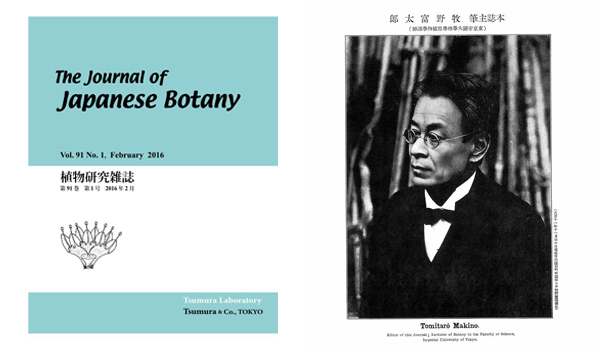
Kampo Resurgence and the Spread of Botany
At that time, Japan was in the midst of a drastic change in culture and lifestyle as it transitioned from the Edo to the Meiji and Taisho eras. Medicine was no exception. As Western medicine had taken center stage, in 1895, two years after Tsumura’s founding, the Imperial Diet rejected a request to continue with Kampo medicine. Kampo was on the verge of a sudden decline.
Meanwhile, the company's founder, Jusha Tsumura, was working hard on the resurgence of Kampo medicine by establishing the Tsumura Research Institute for Pharmaceutical Science in order to research Japanese and Chinese medicine. Later, when Jusha Tsumura met Dr. Makino, who had been forced to suspend publication of the Journal of Japanese Botany, he decided to provide financial support. Dr. Makino's desire to learn about botany coincided with Jusha Tsumura's interest in Kampo, raising the scientific level of both disciplines and making them widely available to the public.
-
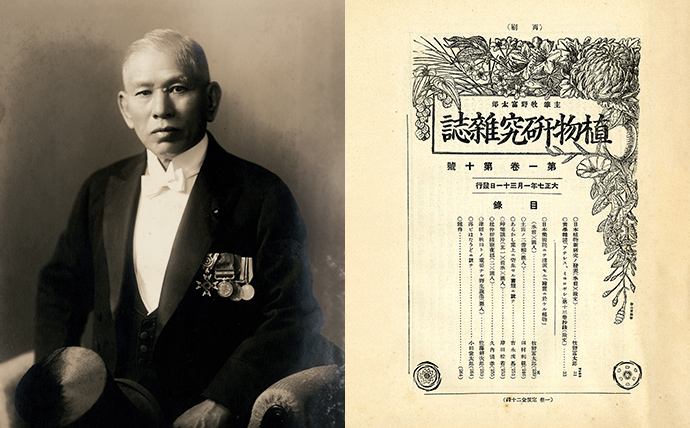
Left: Mr. Jusha Tsumura the First, right: Journal of Japanese Botany (Volume III, Issue 3) -
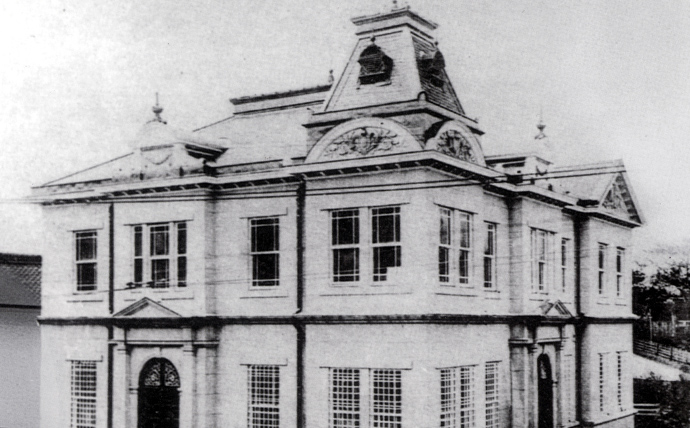
Tsumura Research Institute for Pharmaceutical Science
“I would like to express my deepest gratitude to Mr. Jusha Tsumura for his support in reviving this journal.”
The journal was taken over by the Tsumura Research Institute for Pharmaceutical Science in March 1926, Volume 3, Issue 3. More than 100 years after the first issue, Tsumura continues to publish the journal.
In 2016, a commemorative lecture was held at the University of Tokyo to celebrate the 100th anniversary of the journal. The Centennial Issue of the journal was published, and articles published in past issues were made available in an electronic archive on the Web.
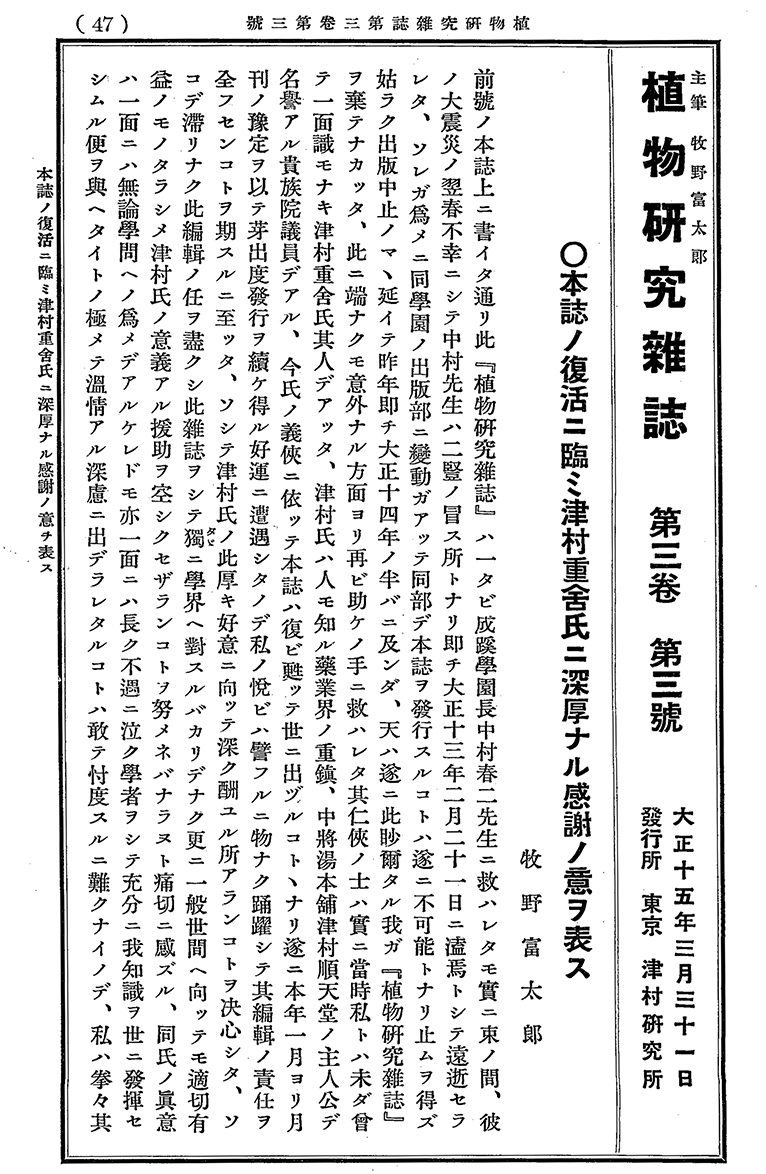
“I would like to express my deepest gratitude to Mr. Jusha Tsumura for his support in reviving this journal.” Dr. Makino expressed these words of acknowledgement in Volume III, Issue 3 of the journal. Dr. Makino described how he met Jusha Tsumura and the background that led up to the resumption of publication, and stated that crude drug research by the Tsumura Research Institute for Pharmaceutical Science contributed to the pharmaceutical industry.
Being in love with flowers for 90 years, grass has been my bed and tree roots my pillow
Dr. Makino's relationship with Tsumura goes beyond the Journal of Japanese Botany. In 1924, the company established the Tsumura Medicinal Plant Garden in Sengawa, Chofu City, Tokyo, which was the origin of the current Medicinal Plant Specimen Garden at the Ibaraki Plant. It is said that Dr. Makino supervised the design of the garden.
The love and passion poured into all plants is reflected in Dr. Makino's words. The Journal of Japanese Botany was published to promote the study and dissemination of botany. That spirit continues to this day.
Plant taxonomy and pharmacognosy are indispensable disciplines that serve as a map for identifying safe and correct crude drugs in order to continue to provide high-quality Kamp medicine to people. Without the Journal of Japanese Botany, which connects Japanese plant taxonomy with crude drugs, Tsumura would not be where it is today.
We at the Tsumura Group would like to express our sincere gratitude to Dr. Tomitaro Makino and all others who have supported the Journal of Japanese Botany.
We will continue this commitment, and strive to achieve our corporate purpose of “Lively Living for Everyone” and further pursue our management philosophy of "the Best of Nature and Science.”
-
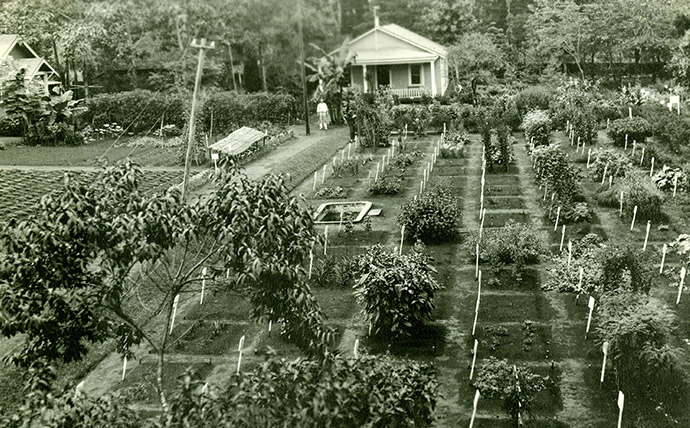
Tsumura Medicinal Plant Garden -
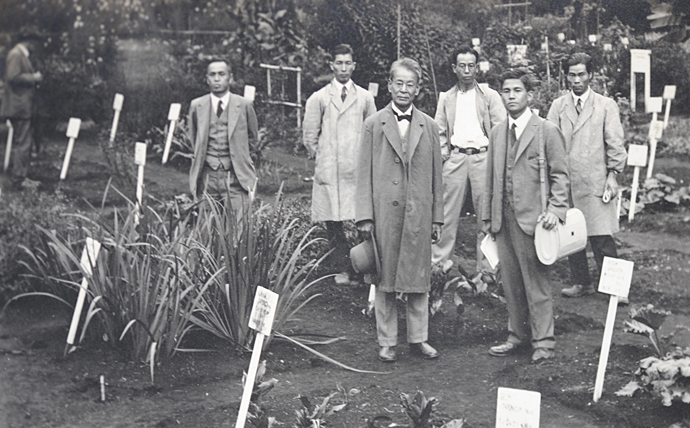
Tomitaro Makino, Yushiro Kimura and others at the Tsumura Medicinal Plant Garden in 1930 (photo from a private collection)
